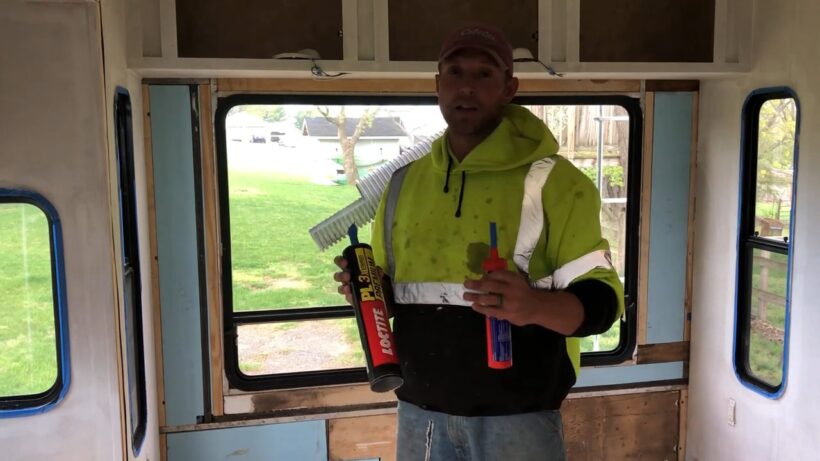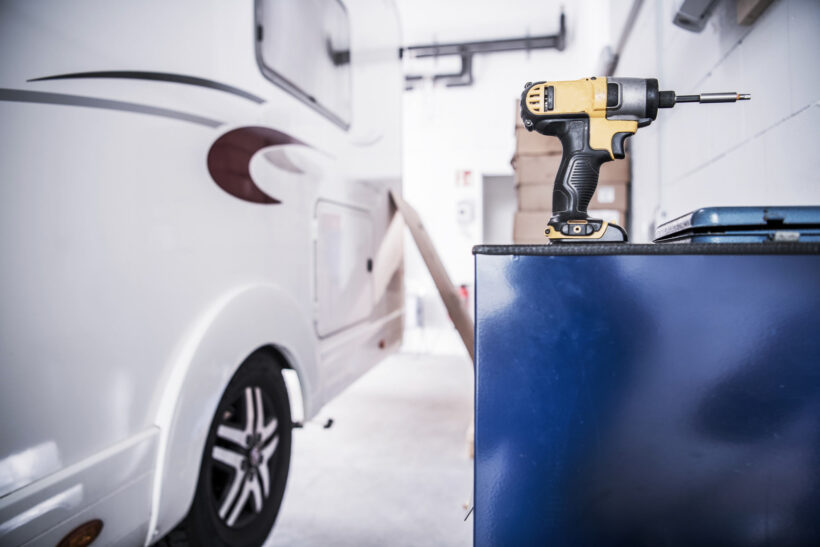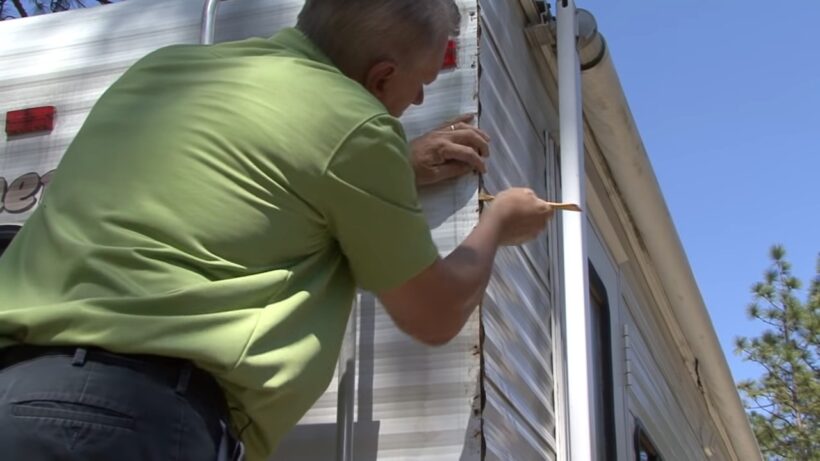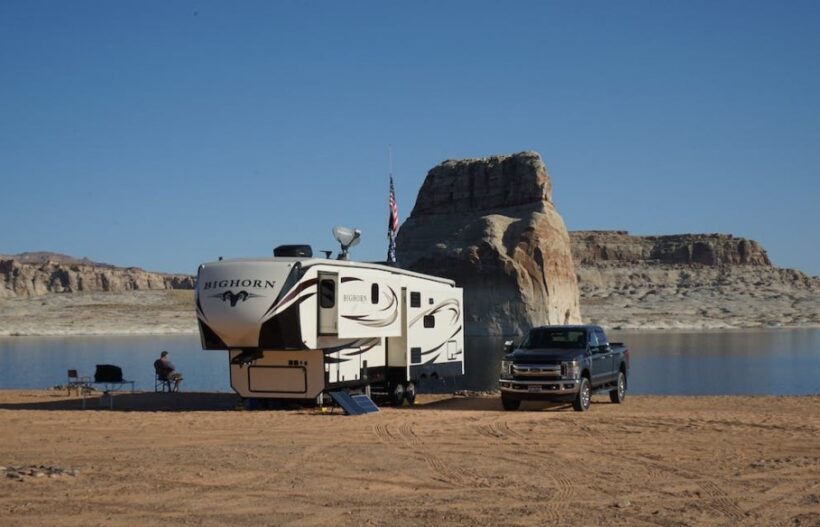Recreational vehicles, or RVs, are a popular mode of transportation for many people who love the freedom of the open road. They provide a comfortable and convenient way to travel and see the country, but they can also be expensive. Unfortunately, accidents can happen, and major damages can occur. If you are dealing with major RV damages, here’s what you need to know. Handling RV damage requires a specific set of knowledge and understanding of the vehicle’s construction and function. Moreover, RV damages could impact not just your travels but also your safety on the road. Hence, it’s crucial to tackle them proactively.
Assess the Damage

The first step in dealing with major RV damage is to assess the extent of the damage. Depending on the severity of the damage, it may be something you can fix yourself, or it may require professional help. Take a close look at the damage and determine if it’s something you can handle or need to call in an expert. Knowing the basics of RV repair and maintenance can assist in the initial assessment. Some popular RV manufacturers provide repair manuals that can be handy in such situations. Various online forums and communities of RV owners share useful tips and experiences about managing RV damage.
If the damage is minor, such as a dent or scratch, it may be something you can fix yourself with a little elbow grease and some DIY know-how. However, if the damage is more extensive, such as a broken window or a damaged roof, it’s best to call in a professional. Attempting to fix major damage yourself could cause further damage and cost you even more money in the long run. Hiring a professional ensures the use of correct repair techniques and equipment. A professional will also be able to assess if there are any underlying issues that may have caused the damage or could potentially cause future problems.
Contact Your Insurance Company
If the damage is significant, it’s important to contact your insurance company as soon as possible. Depending on your policy, your insurance may cover the cost of repairs or replacement. It’s important to remember that not all policies cover all types of damages, so review your policy carefully is important to understand what is covered and what is not. Knowing your policy’s deductibles is equally critical, as it will determine your out-of-pocket expenses. Having a comprehensive RV insurance that covers collision, comprehensive, and liability can help alleviate some financial stress. Keep your insurance company’s contact information handy in the RV for easy access during emergencies.
When you contact your insurance company, be prepared to provide them with all the details of the accident and the damage. This will help them determine the damage’s extent and how much they are willing to cover. Be sure to document the damage with photos or videos as well, as this will help your insurance company better understand the damage’s extent. Keep a record of all your conversations and correspondence with the insurance company. This could be useful in case of any disagreements or misunderstandings later on. If your claim is denied, you have the right to ask for an explanation and potentially appeal the decision.
Find a Reliable Repair Shop

If your RV requires professional repair, finding a reliable repair shop is important. Look for a shop specializing in RV repair with experience working on the type of RV you own. Ask for referrals from friends or family members who own RVs, or look online for reviews of local repair shops. When evaluating repair shops, also consider the convenience of their location and their turnaround times. You might also want to check if they provide any ancillary services like a loaner vehicle or a waiting area with amenities, which could make the repair experience less disruptive.
When you find a repair shop, ask about their experience and qualifications. Ask if they are licensed and insured and about their warranties and guarantees. A good repair shop should be willing to stand behind their work and offer a warranty or guarantee on their repairs. Inquire about their staff’s training and certification, especially for specific types of RVs or repairs. Consider the overall customer service experience, including how communicative, transparent, and accommodating they are.
Get a Written Estimate
Before any work is done on your RV, be sure to get a written estimate from the repair shop. This should include a detailed breakdown of the cost of parts and labor and an estimated completion timeline. Be sure to review the estimate carefully and ask any questions you may have before agreeing to the repair. It’s also beneficial to understand what contingencies could potentially increase the repair cost or extend the repair timeline. Knowing the shop’s policy on parts—whether they use new, used, or aftermarket parts—can also influence the quality and cost of repairs.
If the estimate seems too high, please shop for a second or third estimate. However, remember that the lowest estimate may only sometimes be the best choice. Choosing a repair shop you trust and feel comfortable working with is important, even if it means paying a little more. Balancing the cost with the quality of service is critical. Understand that in some cases, the complexity of the repair may justify a higher estimate, especially if it involves specialist skills or parts.
Stay in Communication

Throughout the repair process, it’s important to stay in communication with the repair shop. Ask for updates on the progress of the repairs, and be sure to communicate any concerns or questions you may have. This will help to ensure that the repairs are done correctly and that you are satisfied with the outcome. Make sure to address any issues immediately rather than waiting until the end of the process. Be proactive in seeking status updates if you don’t hear from the shop periodically. A good repair shop will appreciate your engagement and will take the time to explain things to your satisfaction.
Final Thoughts
Dealing with major RV damage can be stressful and overwhelming. Still, it’s important to take the time to assess the damage, contact your insurance company, find a reliable repair shop, get a written estimate, and stay in communication throughout the repair process. By following these steps, you can ensure that your RV is properly repaired. Or, if you are sick of dealing with al the stress, then try to get cash for junk rvs.

